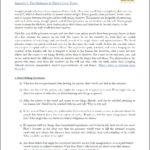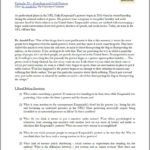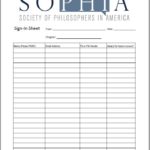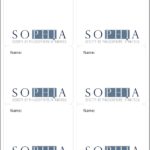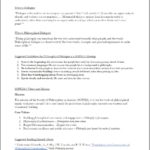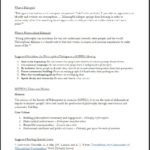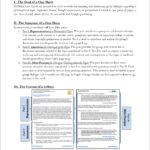SOPHIA’s mission is to “use the tools of philosophical inquiry to improve people’s lives and enrich the profession of philosophy through conversation and community building.” In building community, we aim to reach beyond traditional barriers. People studying or teaching philosophy are encouraged to reach out to people beyond their departments and programs and beyond their colleges and universities. People curious about philosophy, or who have studied it and moved on from the academy, are encouraged to meet up with other interested folks, as well as to people in colleges and universities. Whatever boundaries are to be crossed, the aim is to build community and to engage in enriching conversation about topics that matter.
Given how different people are and the different levels of experience with philosophy, SOPHIA aims to make it as easy, accessible, and inviting as possible to be inclusive of people with different levels of experience in our meetings. Given that, we strive to avoid jargon (technical terms), and/or to explain them simply and quickly, so that the real substance of conversation can be the focus of our meetings. At the same time, not everyone has time for extended readings and homework. Given that, SOPHIA gathers and shares “One-Sheet” documents, which can be front and back and offer accessible entries into subject matters of import for the public. We present some matter to introduce topics and then to offer accessible questions that cut to the quick of topics about which people will have varied points of view.
What we share here on this page:
- Meeting checklists, one for advanced preparation for meetings and one for the day of the meeting
- A List of helpful online tools for planning, announcing, and holding meetings
- A guidelines sheet listing our meeting values and expectations
- A guide for the creation of SOPHIA One-Sheets, in case you want to make your own
- And a list of existing SOPHIA “One-Sheet” documents for holding meetings with minimal effort and maximal ease, substance, and fun.
Meeting Checklists
There are a few kinds of checklists that might be useful. One is for preparing to hold a SOPHIA meeting. The next is for stuff you’ll need or may need for local gatherings
 Meeting Preparation Checklist:
Meeting Preparation Checklist:
This checklist is a set of steps to take in advance of your next SOPHIA meeting, meant to make it easy to plan and hold a fun get-together for local chapters. Follow the steps below or click on the Adobe PDF link on right and print this SOPHIA Meeting Preparation Checklist.
Pick a topic & identify or create a “One-Sheet.”
Consult with the community, at least a small group of SOPHIA chapter leaders, if not a larger group, about what topic might be of significant interest to the community to talk about. If you reach out to many people, it’s good to offer a small set of varied topical choices. A flood of options is hard to choose from & may lead to no clear more popular choice. At the same time, it can be a lot of work to develop what we call a “One-Sheet.” The purpose of such documents is to make it easy, with little to no technical terminology, for people to be at least introduced to a topic, situation, or challenge that inspires philosophical discussion. So, it’s a good idea to look at existing “One-Sheets” or to have a plan for how the group will identify or create a “one-sheet” for whatever topic is selected. For new groups, it’s a good idea to limit choices to existing one-sheets, as easy successes early on will inspire future engagement with SOPHIA.Pick a day and time.
It is a good idea to try to identify a time of month, day, and week is as convenient as you can make it for as many different kinds of people as possible. If the group is primarily student-targeted, for example, after class, but before the end of “work day” hours for other people might be acceptable or good. But, for groups looking to engage the working community, it is rare that before end of the work day during the work week will be a good time for people. Weekend evenings are also often devoted to other things or family events, so some groups have found that an evening event around 6pm or an early afternoon weekend event is often best. For your groups, you can put together a free survey to email people to identify maximal overlap in the selection of a time that is convenient for the largest number of people. Doodle.com is a popular tool for finding a day and time.Pick the place & gain a commitment to be able to use it.
Where you meet matters. Some members of a community find parking on a college or university campus challenging. Often, meeting off campus also diminishes intimidation factors, or the feeling that community members are there just to listen. Meeting off of university and college campuses can therefore increase participation and engagement in conversation. Alternatives include public libraries with usable open spaces for conversation, public schools that allow community groups to use their spaces after school, and other community organizations, such as religious institutions or grocery-story co-ops. For any such space, it is commonly required to reserve the space in advance, to ensure that you can use it, and especially that it will ideally be usable at no cost.Announce the event as widely as you can!
There are various online tools available today. One great one is MeetUp.com, on which a number of our chapters have accounts (Seattle, WA; South Puget Sound/Tacoma, WA; Milwauke, WI; and Lexington, KY). Services like MeetUp can cost money to run, but remember that SOPHIA offers chapter seed grants as well as ad hoc grants, which can cover such costs. Chapters are free to use other tools, of course. At the same time, it can be very helpful also to take posts to services like MeetUp and share them on social media, such as (the following examples are from the Lexington chapter) Facebook, Twitter, LinkedIn, and Google Plus. Announcing these events can be easy also with an email about the Who, What, When, Where, and How sent to local newspapers, local libraries, and college and university events calendar outlets.Think ahead & plan to announce at the gathering.
Ideally think ahead by at least one meeting, to tell people what the next meeting will be about. You can also solicit input about future topics at meetings, but again, try to prepare a reasonably short but varied list of choices, ideally based on matters for which the selection or creation of a “one-sheet” will be easy. Organizing should be as easy and fun as possible, because over-commitment leads to excusable failure to create guiding documents. People need to be on the same page for meetings, to try to stick to achievable commitments for planning future meetings.
 Meeting Day Checklist:
Meeting Day Checklist:
The day of your next meeting, this list might come in handy to make sure that you’re all set with steps to take and materials to bring to the meeting. On the day of your meeting, follow these steps below or click on the Adobe logo on right to print a checklist of these items.
Print enough copies of your One-Sheet (like those below).
We call it a “one-sheet,” but technically it’s one sheet of paper, and thus can be what you can fit on the front and back of a page. That means at most two pages of content, fit on one sheet of paper. It is not best to cram things in, but rather to work hard on distilling content to essentials for meaningful, rich conversation. That should include some text and development, followed by some accessible opening questions. How many should you print? Tools like MeetUp.com can give you a rough idea of how many people will come. Perhaps print that number plus 5. You can also have people share one-sheets, if greater turn out shows up.Bring a sign-in sheet, like this one.
If you share SOPHIA’s aim of building communities of philosophical conversation, it’s important to know who’s joining you. We suggest asking for names, contact information (at least email), and for ideas for future meetings. In addition, our organizers have often had trouble later tracking down these sheets. So, one suggestion is for meeting organizers to use a cellphone camera to photograph the sign-in sheet and save the image into his or her file-storage or email it to fellow chapter leaders to make sure not to lose a record of the growing chapter community. Some use Evernote for this purpose and others report using Dropbox. This digitization is not necessary, just a suggestion for those who may lose track of an important piece of paper.Name badges or labels are very helpful for building community faster.
Name badges can cost some money and not be strictly necessary. BUT, a) SOPHIA offers chapter seed grants and ad hoc grants that can help pay for them, and b) it is much easier to address a person when you quickly and easily can identify his or her name. As such, it is a good idea to obtain and bring at least large mailing labels OR reusable name badge holders AND a few sharpies or equivalent marker pens. One group has reusable badge holders, but they are more cumbersome and use up as must new paper for name badges as do stickers, which are quicker and easier to create and use. Here are stickers one group uses, and here is a template of SOPHIA name badge stickers in Adobe PDF (or in MS Word format).Send out reminders!
A quick message post on MeetUp or equivalent online too, on Facebook, Twitter, and email can be a helpful last minute reminder to those who expressed interest in attending the meeting.-
Bring a camera.
Web sites, announcements, and social media platforms are much more attractive with pictures. Try to snap some quality photos at your meetings. If someone is willing to be “the photographer” for the event, that’s great. Experienced persons snapping a few photos can be enough. If no one person is very experienced with photography, more photos lead to there being at least one or two great shots. Catch people in the act of thinking, talking, and sometimes smiling or laughing. It makes for very inviting images for attracting more members of the community. Talk through values and aims of the meeting.
Task one or a few people with talking through briefly SOPHIA’s values and guidelines for conversation at the start of meetings that include new participants. This sheet here on SOPHIA Meeting Guidelines for Philosophical Dialogue (included also below) was created to make that easy. The idea is to be welcoming, inviting, respectful, and open-minded.When needed: Icebreaker Device.
SOPHIA is developing tools for philosophy-meeting icebreakers. Questions to ask each other have so far been the most fun. Groups can ask each other something that is their favorite big question or big idea, for example. Soon, SOPHIA plans on releasing a number of icebreaker devices and questions for this purpose.
Online Tools
Growing a Chapter
MeetUp.com. To date, we have found the most powerful tool for growing a community of persons interested in meeting up together to be MeetUp.com. For people interested in creating a chapter, note that MeetUp does cost money. However, it is presently (as of October 2018) under $200 per year to run a MeetUp group and SOPHIA offers chapter seed grants.


Polling People &/or Picking a Day and Time
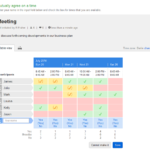
PollEv.com, for quickly and easily polling people in a meeting. Another tool for polling people, though not so easy to use for picking days and times is PollEv.com. If you’ve got a meeting agenda and want to easily see what people answer as they answer it, even in a large group, allowing them to use their cellphones to answer, try out PollEv.com.
Plan or Write Something Together

 Guidelines for SOPHIA Values Sheet
Guidelines for SOPHIA Values Sheet
SOPHIA Secretary James William Lincoln drafted this useful meeting resource for Guiding Philosophical Dialogue helping new groups and new participants in SOPHIA chapter meeting to get situated and ready for the kinds of conversation that we want to hold and encourage.
 Guidelines for Creating SOPHIA One-Sheets
Guidelines for Creating SOPHIA One-Sheets
James William Lincoln and Eric Thomas Weber have drafted a guidelines sheet for what we believe are best practices, at least as far as they have been developed, for creating SOPHIA One-Sheets documents. These documents are meant to be used for local or online conversation facilitation on a given subject matter. See the Adobe PDF version of the guidelines sheet linked to on right or here for more information on how to create One-Sheet documents.
SOPHIA One-Sheets
Education in Crisis
September 15, 2020SOPHIA’s Executive Director Eric Thomas Weber created this SOPHIA one-sheet for the facilitation of a conversation with the Albuquerque Philosophy Collective, our SOPHIA Chapter in Albuquerque, New Mexico. The prompts on this one-sheet consider both current matters involving education in the time of the COVID-19 pandemic crisis, as well as broader, continuing crises in education ...The First Amendment and Censorship
August 28, 2020This one-sheet was created for the SOPHIA of Worcester County chapter by students in the Communication Law and Ethics course at Fitchburg State University and edited by Dr. J.J. Sylvia IV. Its creation was supported by SOPHIA and the Douglas and Isabelle Crocker Center for Civic Engagement. Students included: Shannon Creedon-Axtell, Jonathan Flerra, Owen Fraga, ...The Ethics of Targeted Advertising
August 25, 2020This one-sheet was created for the SOPHIA of Worcester County chapter by students in the Communication Law and Ethics course at Fitchburg State University. It was edited by Dr. J. J. Sylvia IV. Its creation was supported by SOPHIA and the Douglas and Isabelle Crocker Center for Civic Engagement. Students included Landon Callahan, Megan Ptak, ...Ethics of Online Catfishing
August 19, 2020This one-sheet was created for the SOPHIA of Worcester County chapter by students in the Communication Law and Ethics course at Fitchburg State University and edited by Drs. J. J. Sylvia IV and Kyle Moody. Its creation was supported by SOPHIA and the Douglas and Isabelle Crocker Center for Civic Engagement. Students included: Curtis Monahan, ...Artificial Intelligence (AI) and Ethics
August 13, 2020This one-sheet was created for the SOPHIA of Worcester County Chapter by students in the Communication Law and Ethics course at Fitchburg State University and edited by Dr. J.J. Sylvia IV and Dr. Kyle Moody. It was hosted by Strong Style Coffee and its creation was supported by SOPHIA and the Douglas and Isabelle Crocker ...The Ethics of Political Advertising
August 4, 2020Students in the Communication Law and Ethics course at Fitchburg State University created this one-sheet for the Worcester County (MA) SOPHIA Chapter. Dr. J.J. Sylvia IV and Dr. Kyle Moody edited it. Its creation was supported by SOPHIA and the Douglas and Isabelle Crocker Center for Civic Engagement. Students included Lindsey Ogden, Kenneth Howell, Martin ...The Ethics of Fake News
July 30, 2020Students in the Communication Law and Ethics course at Fitchburg State University created this one-sheet for the Worcester County (MA) SOPHIA Chapter. Dr. J.J. Sylvia IV and Dr. Kyle Moody edited it. Its creation was supported by SOPHIA and the Douglas and Isabelle Crocker Center for Civic Engagement. Over the course of the 2016 U.S. Presidential ...The Right to Life vs. the Right to Bodily Autonomy: Thomson’s “A Defense of Abortion”
May 10, 2019Dr. Bertha Alvarez Manninen drafted this great SOPHIA One-Sheet document to talk about some important questions about America’s hottest topic: abortion, some of which arose in Episode 4 of Philosophy Bakes Bread, on “Shared Values in the Abortion Debate,” the subtitle of her book on the subject, Pro-Life, Pro-Choice. The Lexington SOPHIA Chapter is getting ...Happily Ever After? Existentialism and Romantic Love
February 15, 2019For the February meeting of the Lexington SOPHIA Chapter, Lila Wakeman drafted this great SOPHIA One-Sheet document to talk about some important questions that Dr. Skye Cleary raised in Episode 60 of Philosophy Bakes Bread, on “Existentialism and Romantic Love,” the title of her book on the subject. The group is getting together on February ...Goodwill to All
December 19, 2018This winter, the Lexington SOPHIA Chapter thought it would be a good idea to reflect on good will. We are accustomed to hearing around the holiday season about “Good will toward men,” a line from the Book of Luke in the Bible. It seemed like an important topic that might be on people’s minds around ...What Is Public Philosophy?
October 17, 2018There is a growing movement for public philosophy today. Leaders of the Milwauke SOPHIA Chapter created a SOPHIA One-Sheet asking “What Is Public Philosophy?” given all the different outlooks on what the practice is that such a movement might entail. For a little more background on the call for more public philosophy, see the statement ...Ring of Gyges: Justice When No One’s Looking?
October 15, 2018If you could get away with something that is considered wrongdoing, but seems like it would be to your advantage, would you be able to resist doing it? This SOPHIA One-Sheet addresses this question in reference to the story about Gyges’ Ring in Plato’s Republic. This One-Sheet is based on a prompt shared by the Center for ...The Ethics of Dentistry
September 17, 2018SOPHIA offers this One-Sheet document for groups to use to make a fun, meaningful conversation easy to hold on the subject of Episode 2 of Philosophy Bakes Bread, which concerned “The Ethics of Dentistry” with Dr. Bill Myers. Naturally, some of the issues raised in this one-sheet overlap topics of interest in medical ethics, but ...The Nature of Good and Daily Life
September 11, 2018The Shining Network SOPHIA Chapter at Kamala Nehru College at the University of Delhi launched their inaugural chapter meeting on the topic of “The Nature of Good and Daily Life.“ They created a SOPHIA One-Sheet Document for their meeting that they have kindly shared with SOPHIA’s central office to offer for other chapters’ meetings and conversations. ...Clutter
September 7, 2018SOPHIA has created our journal, Civil American, and our radio show and podcast, Philosophy Bakes Bread, in part to offer content for conversations among our local chapters. The Chairman of SOPHIA’s Board of Trustees John Lachs published his short essay, “Clutter,” in the 2017 edition of Civil American not very long after his wife passed away. The ...The Philosopher Within You
August 9, 2018SOPHIA is grateful for permission from Dr. Andrew Pessin to share with you the following excerpt, “The Philosopher Within You,” from his book The 60-Second Philosopher. Leaders of the Lexington SOPHIA Chapter got together to prepare for our next chapter meeting, read over Pessin’s essay, and drafted some guiding questions for our newest one-sheet document. These ...Ways of Knowing in Nature
July 25, 2018Here is the revised one-sheet document that we updated after using the original as guiding conversation starter to talk about “Ways of Knowing in Nature” in our July 2018 online SOPHIA symposium. This document was originally crafted by Drs. Andrea Christelle and Robin Weeks, who work together in Sedona Philosophy. The following is the content ...Kneeling and Civil Protest
July 18, 2018Recent protests calling attention to police brutality have taken the form of kneeling during the playing of the national anthem at football games and other sporting events. Episode 53 of Philosophy Bakes Bread, on “Kneeling and Civil Protest,” with Dr. Arnold Farr, focused on the criticisms and defenses of players for their protests, as well as ...The Molemen & Plato’s Cave Today
March 16, 2018Here is our one-sheet document on “The Molemen and Plato’s Cave Today.” For short, you can just call it “Plato’s Cave Today.” The idea is to think about problems for conceiving of truth and knowledge, which lead to difficulties in trusting politicians, news sources, scientists, and more. Plato’s famous cave metaphor is explained in short ...‘It’s Over Debbie’ – Euthanasia
March 16, 2018This piece was published in the Journal of the American Medical Association in 1988 and inspired a firestorm of responses. Dr. John Lachs proposed this as a one-sheet document for a conversation that he and Executive Director Weber organized in Oxford, MS, in 2008 on “Ethics at the End of Life.” This one-sheet document was ...Disagreement
March 16, 2018Courtesy of the South Puget Sound SOPHIA Chapter By Dr. Sergia Hay, Dr. Michael Rings, and Matthew Salzano First used on March 5, 2018 at Pacific Lutheran University Topic: Disagreement: Strategies for Talking Across Divides Questions for conversation: 1) How can we have productive discussions when there is disagreement? 2) What does it mean to have a “productive” discussion when there is ...




